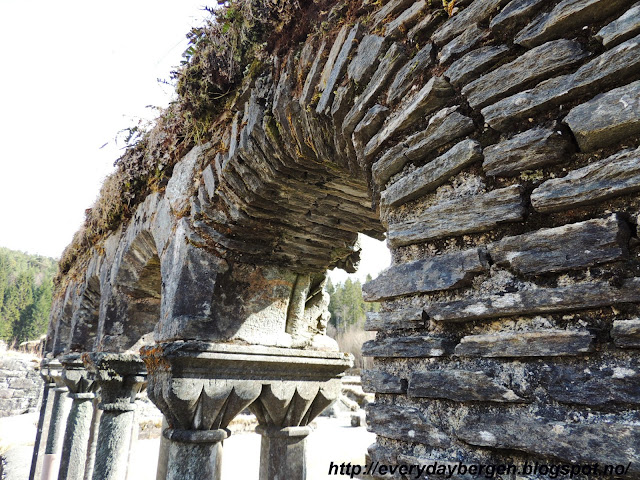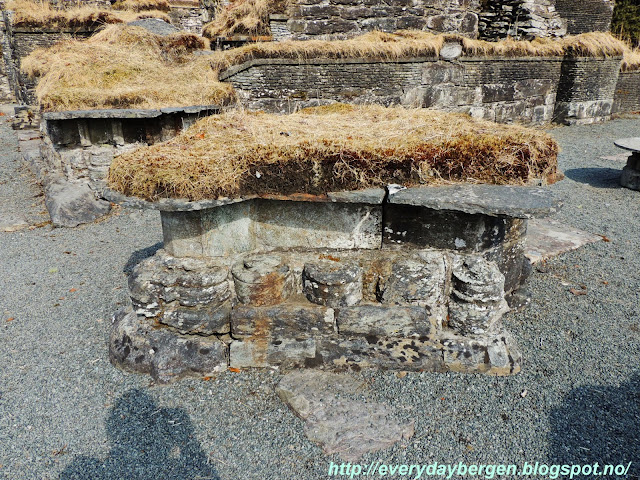Lysekloster
Lyse Abbey or Saint Mary's Abbey, Lyse (Norwegian: Lyse Mariakloster) is a now-ruined Cistercian monastery in Os in the county of Hordaland in south-western Norway. The name "Lyse" is derived from the Lysefjorden, "the fjord of light", on which the building stood.
Lyse Abbey was founded in 1146 by Sigurd, Bishop of Bergen, on farmland that he owned, as the Christianisation of Norway was nearing completion. The first monks were brought from Fountains Abbey in Yorkshire, England. This was the first Cistercian monastery in Norway and was modelled on others built in England and France.
As with all Cistercians, the monks took a vow of poverty. Renouncing all sources of income except from farming, they developed considerable skill in farming operations and management. Over time, this led to the abbey acquiring many other farms in the area, making it ever more rich and powerful. In all, the monastery had about 50 other farms in Os with at least as many more in other areas.
The ruins are protected as a national monument and archaeological work to preserve and record the site continues. The monastery is a well-visited tourist site with good nature walks nearby. It is common for couples today to be married at the ruins, or at least to have wedding photographs taken there.
Lyse Abbey was founded in 1146 by Sigurd, Bishop of Bergen, on farmland that he owned, as the Christianisation of Norway was nearing completion. The first monks were brought from Fountains Abbey in Yorkshire, England. This was the first Cistercian monastery in Norway and was modelled on others built in England and France.
As with all Cistercians, the monks took a vow of poverty. Renouncing all sources of income except from farming, they developed considerable skill in farming operations and management. Over time, this led to the abbey acquiring many other farms in the area, making it ever more rich and powerful. In all, the monastery had about 50 other farms in Os with at least as many more in other areas.
The ruins are protected as a national monument and archaeological work to preserve and record the site continues. The monastery is a well-visited tourist site with good nature walks nearby. It is common for couples today to be married at the ruins, or at least to have wedding photographs taken there.











Very interesting post. Nice photos!
ReplyDeleteThis comment has been removed by the author.
ReplyDeletelovely stonework - reminds me of the dry-stone walling found in these parts.
ReplyDelete